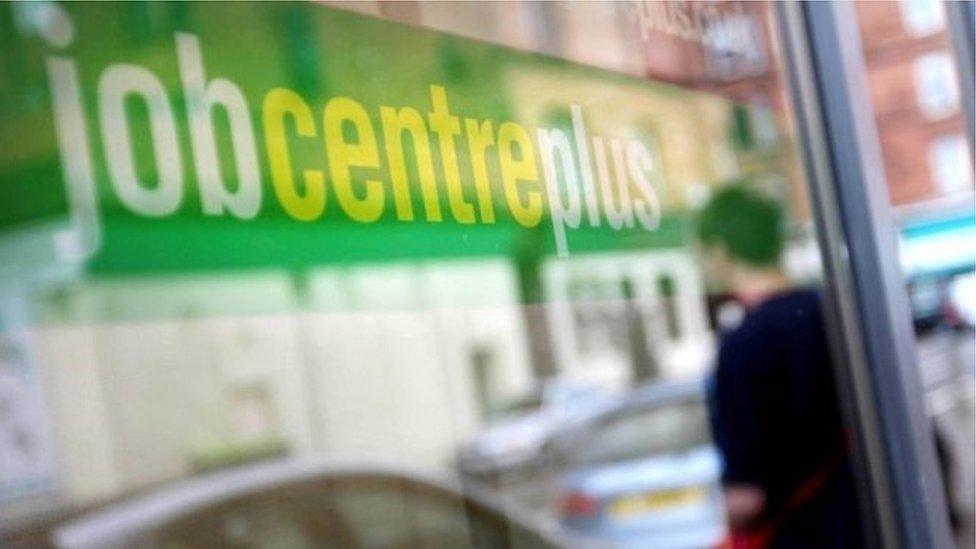Men 'less likely to claim benefits than women' in Wales
- Published
- comments
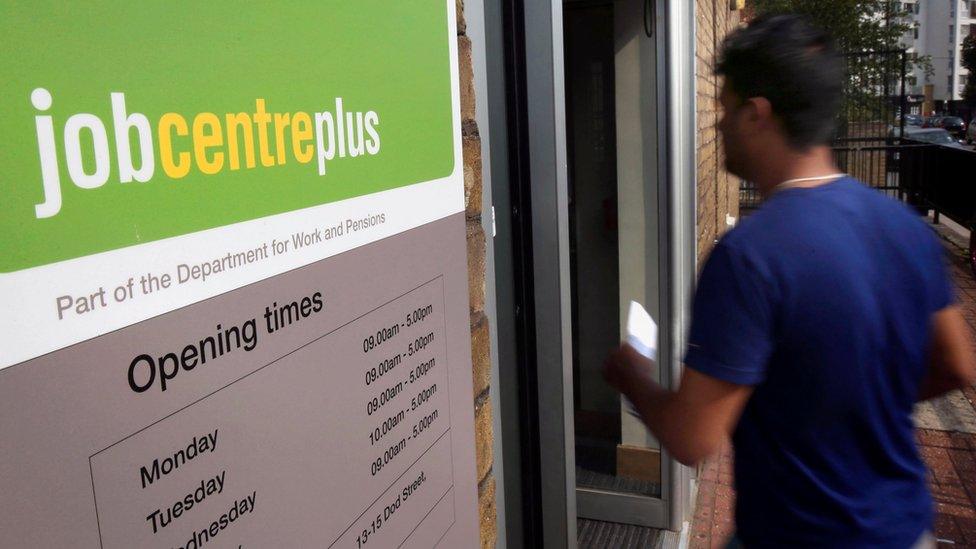
The UK government has hailed record numbers of people in work
Men are now less likely to claim out-of-work benefits than women in Wales, in contrast to the situation four years ago, according to a think tank.
The ratio of men claiming went from one in six to one in nine from 2012-2016, staying about one in eight for women.
The Bevan Foundation said it was unclear whether it was due to tighter eligibility or people finding work.
The Department for Work and Pensions said 70,000 people in Wales found work in the period and 48,000 were women.
Charity Chwarae Teg said women still faced "a multitude of barriers" preventing them from taking up jobs.
Lucy Williams says women face certain barriers when returning to work
The report by the Bevan Foundation, based on official statistics, looked at changes in the patterns of benefit claims over a period when unemployment fell across Wales and the UK.
The study found wide disparities with 16.2% of people in Blaenau Gwent - one in six - claiming out-of-work benefits, more than twice the 7.5% rate for neighbouring Monmouthshire.
But the largest drop in claimants had been in areas most reliant on state support, such as Blaenau Gwent.
Overall, the number claiming fell by more than 60,000 - from 276,660 in 2012 to 216,240 in 2016.
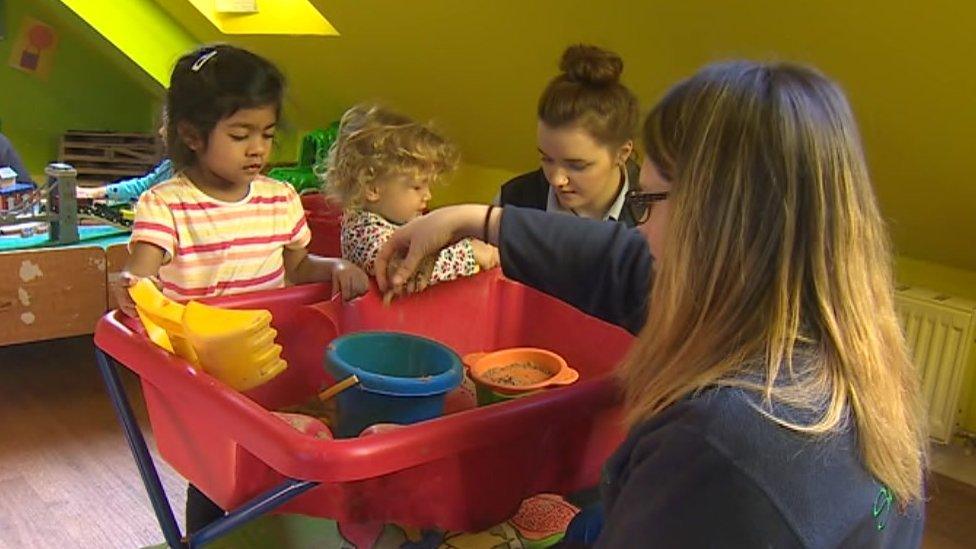
Childcare availability can be a barrier to women finding work, says charity Chwarae Teg
Lucy Williams, the Bevan Foundation's policy and research officer, said: "What we don't know is whether this drop nationally and at the local authority level is due to more people finding suitable employment or due to barriers to accessing some out-of-work benefits such as stricter assessment criteria for Employment and Support Allowance, external.
"What the data doesn't tell us is why the demographics of those claiming out-of-work benefits have changed over five years with a significant reduction in male claimants but less so for females, resulting in more women claiming out-of-work benefits than men."
There were also 14% fewer households claiming working tax credits and 7% fewer claiming housing benefits since 2012.
"Our welfare reforms are supporting people to find and stay in employment and we know that during this period 70,000 more people in Wales found work, of which the vast majority were women," a DWP spokesman said.
Cerys Furlong, chief executive of Chwarae Teg, said: "It is often more difficult for women to return to work than it is for men, as they tend to shoulder more of the burden of additional responsibilities such as childcare.
"Very often women are forced to choose between low paid, part-time or unstable employment or remaining out of work."
- Published19 July 2017
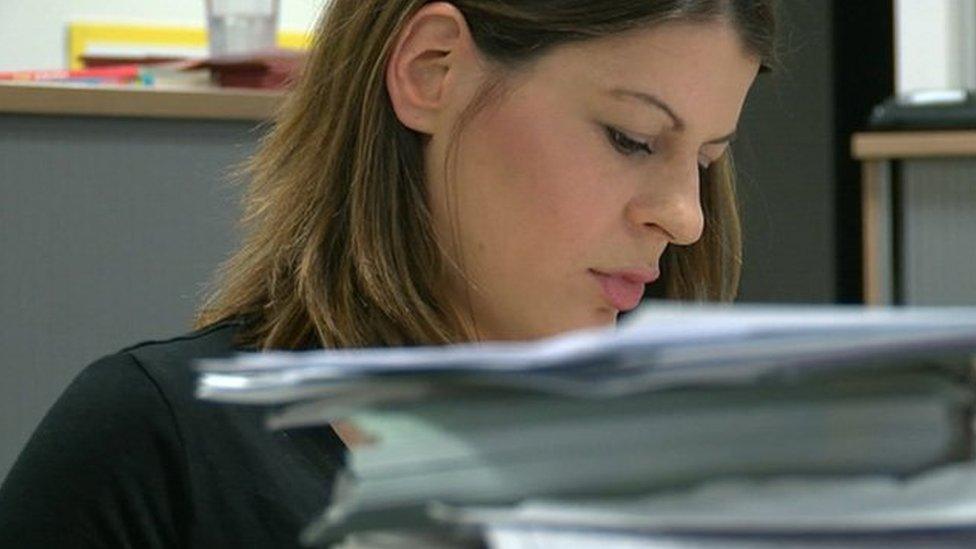
- Published4 April 2017

- Published14 February 2017
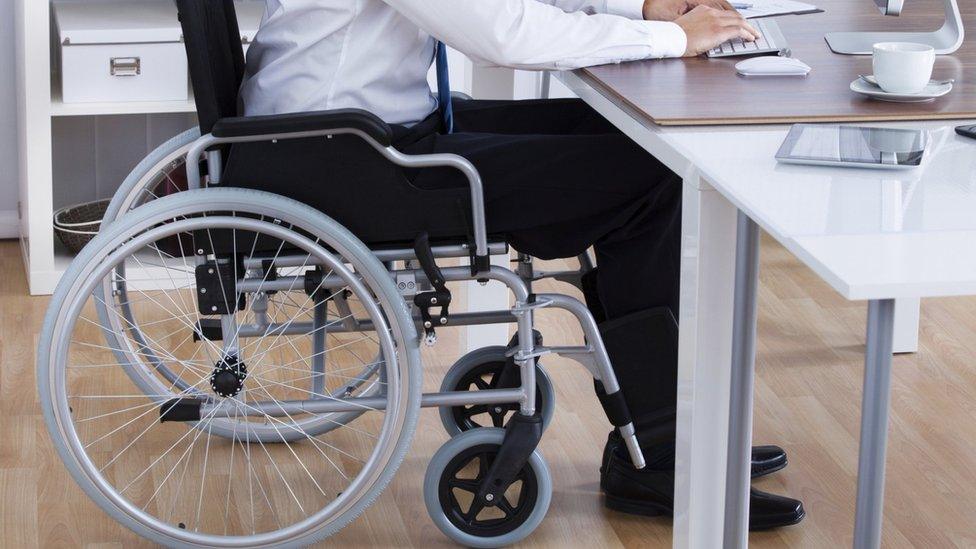
- Published12 July 2017
